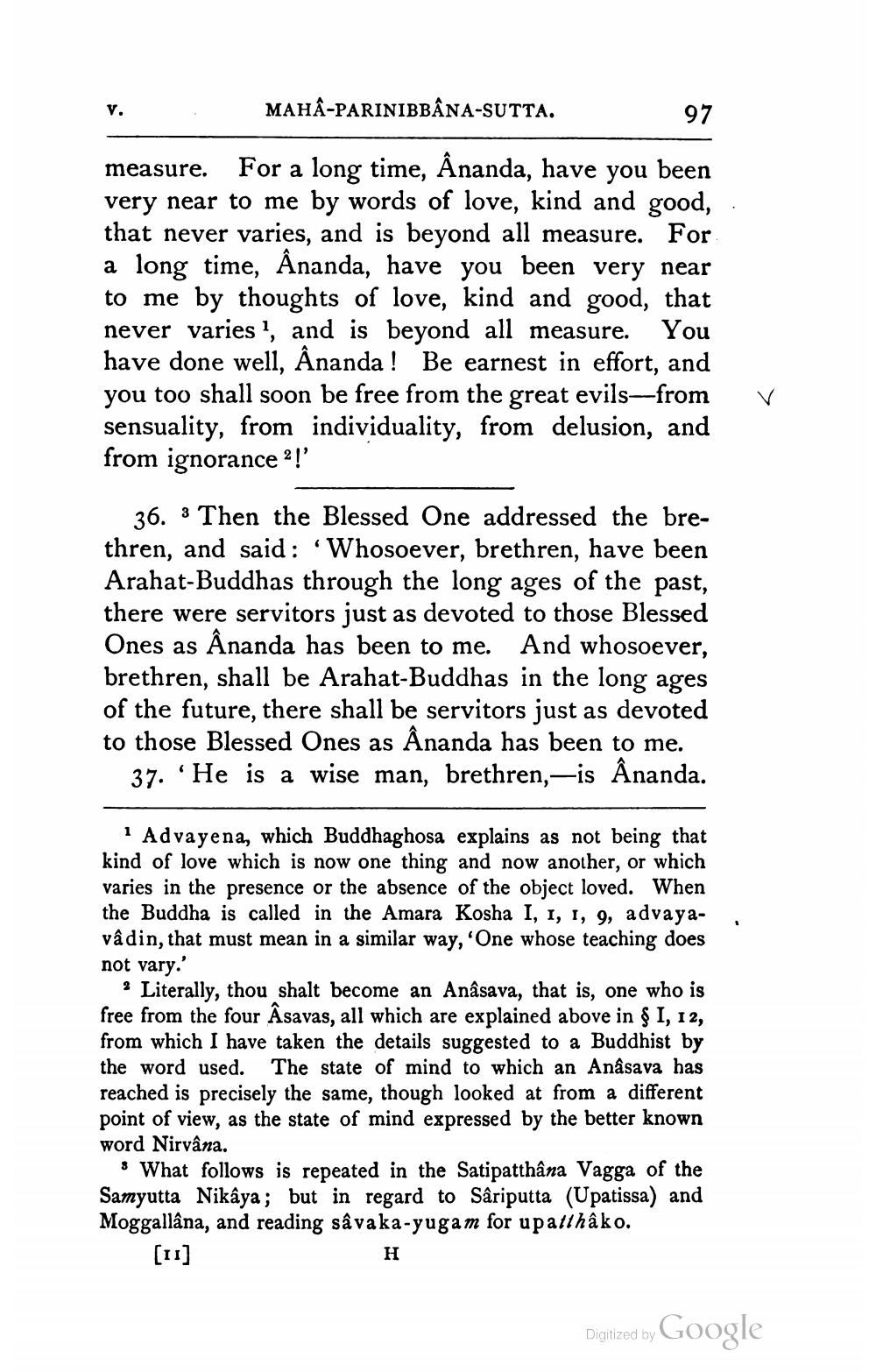________________
MAHA-PARINIBBANA-SUTTA.
97
measure.
For a long time, Ânanda, have you been very near to me by words of love, kind and good, that never varies, and is beyond all measure. For a long time, Ânanda, have you been very near to me by thoughts of love, kind and good, that never varies1, and is beyond all measure. You have done well, Ânanda! Be earnest in effort, and you too shall soon be free from the great evils-from sensuality, from individuality, from delusion, and from ignorance 2!'
V.
36. Then the Blessed One addressed the brethren, and said: 'Whosoever, brethren, have been Arahat-Buddhas through the long ages of the past, there were servitors just as devoted to those Blessed Ones as Ânanda has been to me. And whosoever, brethren, shall be Arahat-Buddhas in the long ages of the future, there shall be servitors just as devoted to those Blessed Ones as Ânanda has been to me. He is a wise man, brethren,-is Ananda.
37.
1 Advayena, which Buddhaghosa explains as not being that kind of love which is now one thing and now another, or which varies in the presence or the absence of the object loved. When the Buddha is called in the Amara Kosha I, 1, 1, 9, advayavâdin, that must mean in a similar way, 'One whose teaching does not vary.'
2 Literally, thou shalt become an Anâsava, that is, one who is free from the four Asavas, all which are explained above in § I, 12, from which I have taken the details suggested to a Buddhist by the word used. The state of mind to which an Anâsava has reached is precisely the same, though looked at from a different point of view, as the state of mind expressed by the better known word Nirvana.
What follows is repeated in the Satipatthâna Vagga of the Samyutta Nikâya; but in regard to Sâriputta (Upatissa) and Moggallâna, and reading sâvaka-yugam for upatthâko.
[II]
H
V
Digitized by
Google




